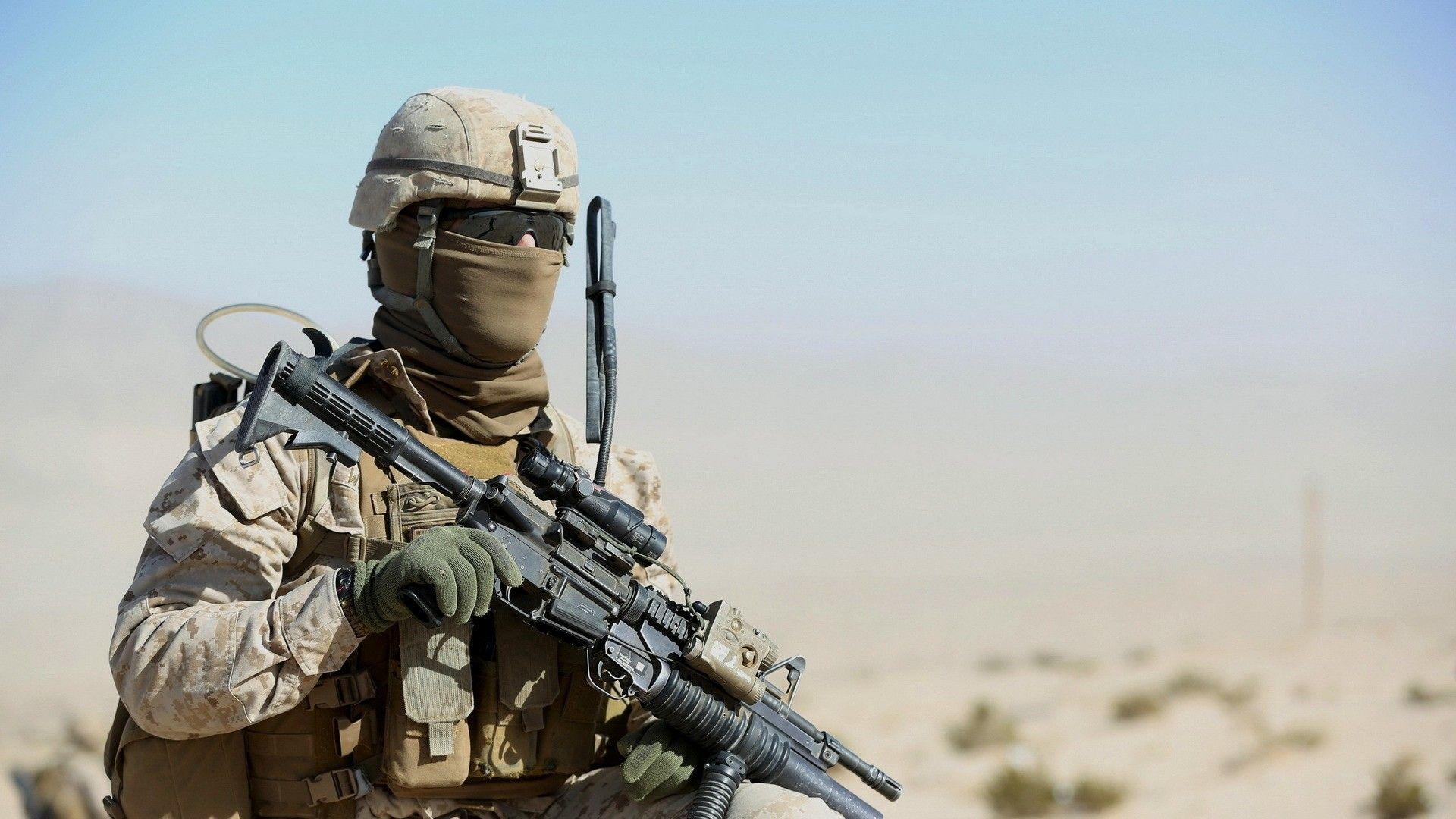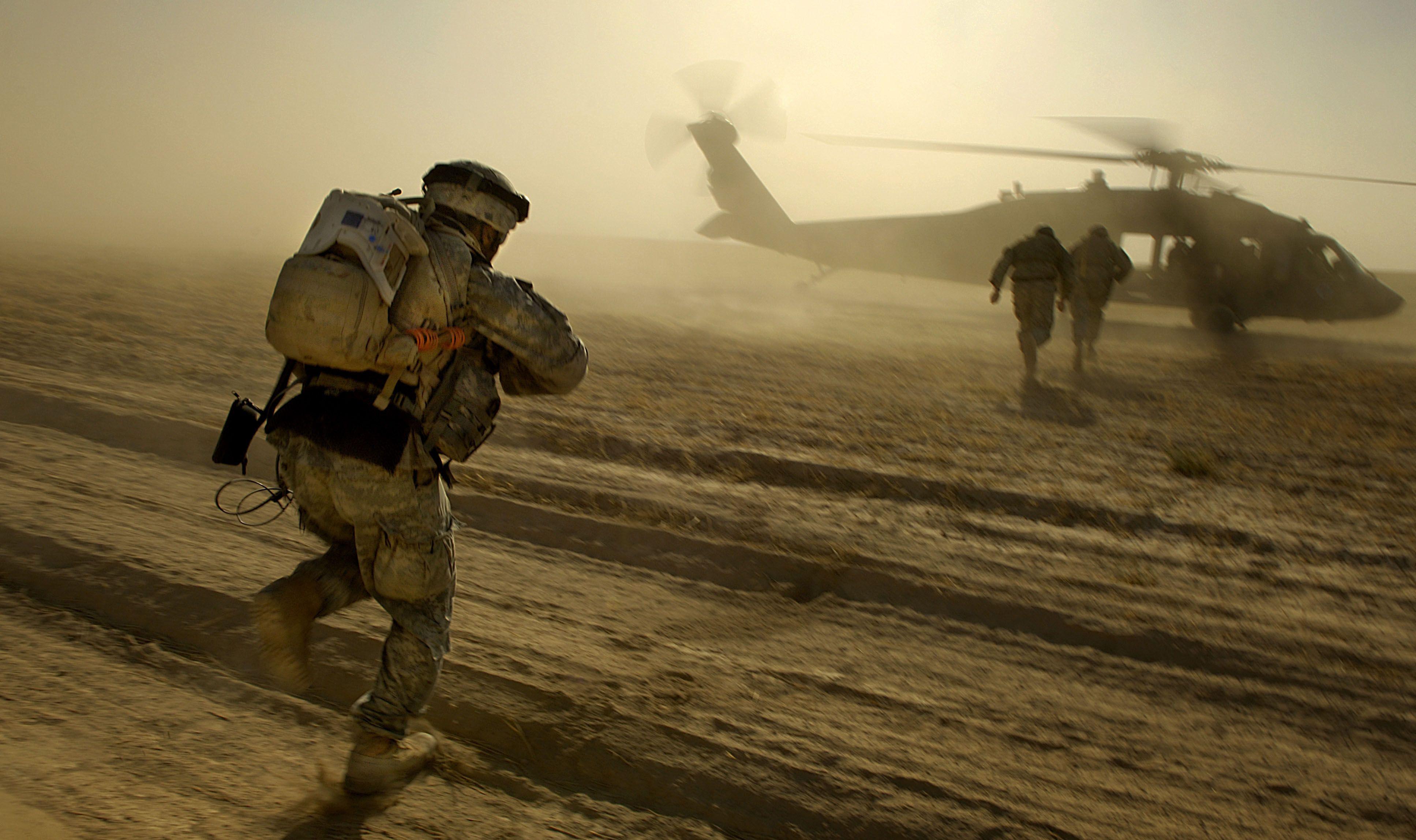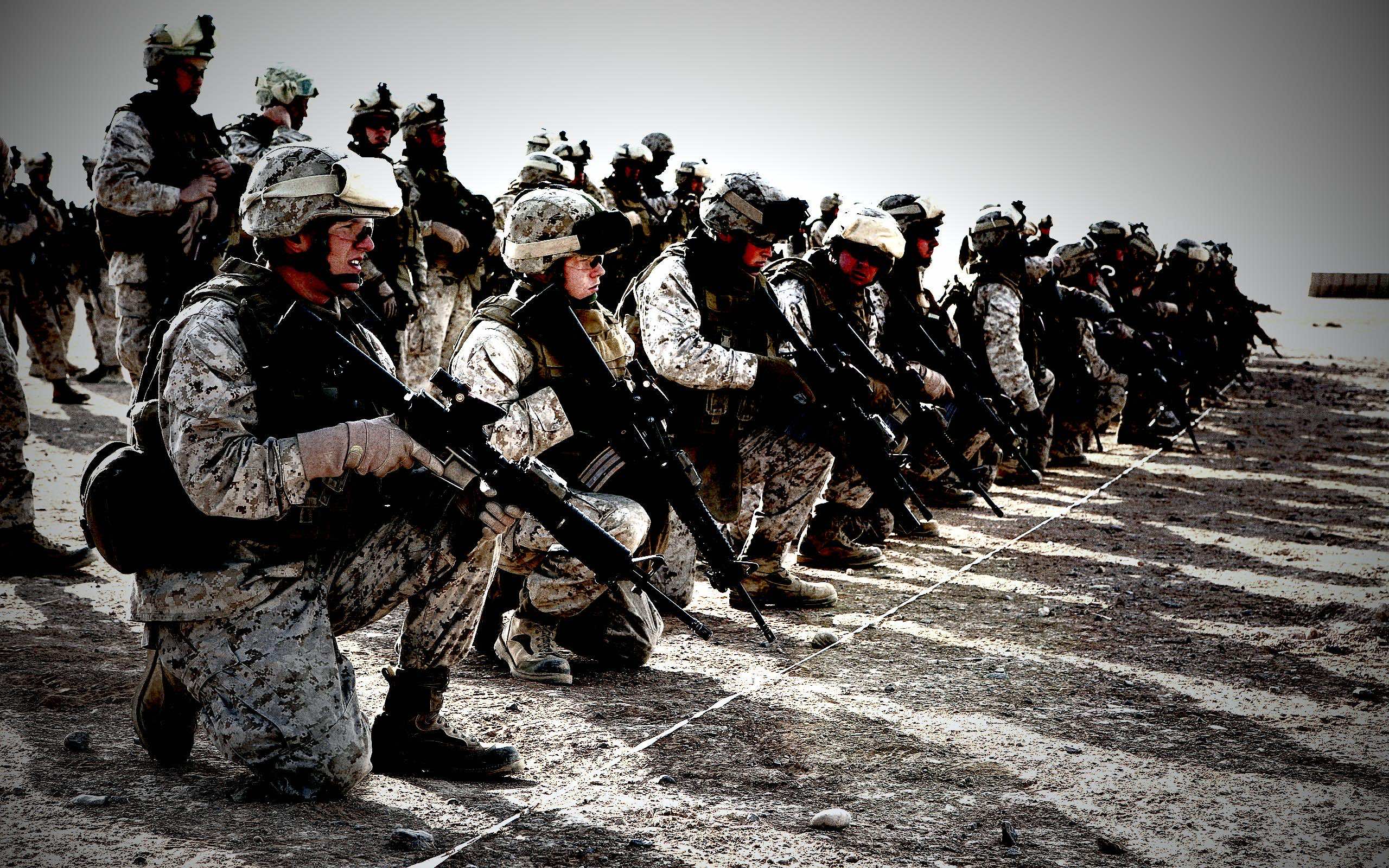Is The Military A Cult? Exploring The Controversial Question
Have you ever stopped to wonder about the intense bonds and unique structures within the military? It’s a very common thought, you know, to question how such a powerful institution shapes the people who join it. The assertion that the military is a cult is, well, it’s certainly a provocative and controversial idea, and it gets people talking.
For many, the very idea seems a bit absurd. After all, the military is an organization designed to protect and serve a nation, and it has multiple times in the past proven to protect the innocent. How could something so vital to a country be considered a cult? Yet, as discussions I've seen suggest, some folks find surprising similarities, sparking a conversation that’s much more complex than it first appears.
This discussion isn't just academic; it touches on deep personal experiences and societal views. We'll look at why some people draw these comparisons, what the core differences are, and why it’s so important to have an open mind when considering such weighty topics. So, let's explore this interesting idea together, trying to get a clearer picture of what’s really going on.
Table of Contents
- The Big Question: Is the Military a Cult?
- Understanding Cult Dynamics and Military Structure
- Similarities That Spark the Discussion
- Key Differences: Why the Military is Not a Traditional Cult
- Societal Perception and Media Influence
- Personal Stories and Differing Views
- Making Your Own Decision
- Frequently Asked Questions
The Big Question: Is the Military a Cult?
The question of whether the military is a cult is, honestly, a complex and controversial one. On the surface, it may seem absurd to suggest that the military, an institution designed to protect and serve a nation, could be considered a cult. Yet, discussions around this topic persist, and it’s not just a passing thought for some people. It’s a very real concern for them, actually.
It’s crucial to understand that the military is not a cult in the traditional sense, which typically involves a charismatic leader, mind control, and exploitation. That’s a pretty important distinction to make, you know. However, the assertion that the military is a cult is provocative and controversial, leading many to explore why such a comparison even comes up in the first place.
The phrase "the military is a cult" often pops up in discussions about how military basic training brainwashes recruits, or when people consider reasons not to join the United States military. Some even go so far as to suggest that American soldiers are as much victims as they are protectors. So, there's a lot to unpack here, obviously.
Understanding Cult Dynamics and Military Structure
What Makes a Cult, a Cult?
When we talk about a cult, we usually picture a group with a charismatic leader, using mind control and exploitation. There’s often a sense of isolation from the outside world and a unique language or terminology that only group members truly understand. If one questions the beliefs of the group or the leaders of the group, one is, well, often met with severe consequences. This is how many people define what a cult really is, you know.
A cult leader is typically not accountable to any outside authorities, which is a key characteristic. You are to be submissive and obey the cult leader at all costs, even kill or die for them at their command. If you don’t agree with the group’s direction, you might be executed, but most likely imprisoned. These are some of the very stark realities associated with cults, apparently.
How Military Training Shapes Recruits
Basic military training, as many know, is designed to instill discipline, teamwork, and a strong sense of duty. It’s a very intense experience, honestly, meant to transform civilians into soldiers. This process involves a lot of structured learning and physical demands, which, in a way, prepares individuals for the unique challenges of military life.
Some observers suggest that basic military training uses techniques that can seem like brainwashing. This is what basic military training is for, some argue, to create a cohesive unit that acts as one. The training introduces terminology the outside world doesn't understand, which can create a sense of belonging among service members but also a barrier to those outside the group. It's a pretty powerful tool for group cohesion, actually.
The goal is to create a highly effective fighting force, where individuals can trust each other implicitly. This intense bonding and commitment can sometimes mimic the dynamics of a cult, but the military’s purpose is ultimately rooted in serving and protecting the nation. So, while the methods might seem similar on the surface, the underlying aims are quite different, you know.
Similarities That Spark the Discussion
When people suggest that the military is similar to a cult, they often point to several striking parallels. These aren't always direct matches, but they do show how close a lot of this is, as some have noted. It’s about the dynamics and the way individuals are integrated into the group, you see.
Isolation and New Language
One common point of comparison is the isolation from the rest of society or those not a part of the group. Basic training, for instance, often involves recruits being cut off from their usual support networks, which can feel a lot like the isolation tactics seen in cults. This separation helps to break down old identities and build new ones, very much focused on the group.
Along with this, there’s the use of mind control and brainwashing techniques, as some sources suggest. This isn’t necessarily malicious, but it’s about shaping individuals to fit a specific role. The introduction of terminology the outside world doesn't understand further reinforces this sense of a distinct group, creating an "us versus them" mentality that’s pretty powerful, you know.
Intense Bonding and Unquestioning Loyalty
The military fosters an intense bonding among its members, often through shared hardship and collective goals. This can create a deep sense of camaraderie and loyalty, where individuals are expected to be submissive and obey their leaders at all costs, even kill or die for them at their command. This level of commitment, you know, is what some find unsettlingly similar to cult dynamics.
Daniella, who grew up in the Children of God cult, also known as The Family, and Mike, who was in Scientology, discussed ways that the military, of which they were both in for many years, is cultic. They shared their differing perspectives, yet both found common ground in these intense group dynamics. What Daniella came to understand is that the military and the cult had a lot more in common than she ever wanted to admit—more than any of us strong, proud Americans would like to admit, apparently.
Challenging Beliefs and Consequences
In many group settings, including some cults, if one questions the beliefs of the group or the leaders of the group, one is often met with severe repercussions. While the military has established channels for grievances and dissent, the emphasis on obedience and chain of command can sometimes make it feel like questioning is not truly an option, especially in high-stakes situations. This is a pretty significant point for some critics, you know.
The Uniform Code of Military Justice (UCMJ) outlines the rules and consequences for service members, which can be quite strict. Some might argue that certain aspects, like those related to military brainwashing or military crime against humanity, or even military ethics violations, feel like unjust laws when viewed through a certain lens. This perspective, as seen in some discussions, raises questions about the balance between discipline and individual freedom within the military culture. Learn more about military culture on our site.
Key Differences: Why the Military is Not a Traditional Cult
Despite the intriguing similarities, it’s really important to highlight the fundamental differences that set the military apart from a traditional cult. The guard is not a cult, and these distinctions are pretty clear when you look closely, you know.
Accountability and Purpose
One major difference lies in accountability. The leader of a cult is not accountable to any authorities, which is absolutely not the case in the military. Military officers, from the lowest ranks to the highest, operate within a strict chain of command and are accountable to civilian oversight, laws, and regulations. This external accountability is a very big deal, actually, providing checks and balances that cults simply lack.
Furthermore, the military’s purpose is ultimately rooted in serving and protecting the nation, a public and widely accepted mission. Cults, on the other hand, typically serve the interests of a charismatic leader or a small, insular group, often with hidden agendas. This difference in purpose is, quite frankly, a defining factor, you know.
Support Structures and Mental Well-Being
While military discipline can be demanding and have an impact on mental health, the accountability and support structures within the military differ significantly from the isolating and coercive tactics often seen in cults. The military, for instance, has programs and resources aimed at supporting service members' mental well-being, though access and effectiveness can vary. This is something that’s pretty much absent in cults, you know.
There are discussions, like those found in the cults community, that explore how cults might prey on service members. This suggests that the military itself is not the cult, but rather a target for external cults looking for vulnerable individuals. The FBI, for example, has joined with local law enforcement agencies to raid churches near army installations associated with alleged cults preying on service members. This distinction is, arguably, quite important.
Societal Perception and Media Influence
The public image of the military plays a huge role in how we perceive it. The media, for instance, often enhance the public image of the military by glorifying stories of combat veterans. This can lead to uncritical support of all things military, which is becoming the new normal in our society, some argue. This glorification can sometimes obscure deeper questions about military culture and its effects on individuals, you know.
Some suggest that there's a "cult of military 'service'" in the United States. This isn't about the military itself being a cult, but rather about the societal reverence for military service reaching a point where it discourages critical examination. Debating the finer points of a military record, for example, might miss this larger point being made: that the very idea of military service can become almost sacred, in a way.
This societal view can make it harder for people to openly discuss the challenging aspects of military life or to even consider alternative perspectives. It creates a very strong narrative that, for some, overshadows any potential downsides or comparisons to other group dynamics. It’s a pretty powerful force, honestly, shaping how we think about those who serve.
Personal Stories and Differing Views
The discussion around whether the military is a cult often comes alive through personal stories. Daniella and Mike, for example, both spent many years in the military after leaving cults. Together they discussed ways that the military is cultic and their differing perspectives. Their experiences offer a unique lens through which to view the similarities and differences, you know.
Daniella's background in the Children of God cult gives her a distinct perspective on group dynamics, control, and indoctrination. Her insights, combined with Mike's experience in Scientology, highlight how some elements of military life, like intense training or unquestioning obedience, can resonate with their past experiences in cults. It's a pretty compelling comparison for them, obviously.
However, it’s also worth remembering that the individuals making these comparisons often preface them with disclaimers. "I'm not actually saying that the military is a cult," some might say, or "Really this is all tongue in cheek and for a good laugh." This suggests that while they see strong parallels, they also acknowledge the fundamental differences and the serious nature of the military's role. It's a nuanced conversation, to be sure, and one that requires a lot of thought.
Making Your Own Decision
Ultimately, the question of whether the military is a cult is not a simple yes or no. It's a complex topic with many layers, and the answer often depends on one's perspective and definition. The military, as an institution, has a clear mission and accountability structures that differ significantly from typical cults. Yet, the intense bonding, discipline, and unique culture can certainly prompt comparisons for some individuals. So, it’s a lot to think about, really.
If you're trying to make a decision about military service, or just understand it better, it’d help you make a decision if you talked to a service member in real life about these things. Hearing firsthand accounts can provide invaluable insight that goes beyond headlines or generalized statements. Their experiences, both positive and challenging, can paint a much fuller picture. That's a pretty good way to get a real feel for things, you know.
Considering the varying viewpoints and personal experiences is key to forming your own informed opinion. It’s about looking at the full spectrum of information, from its proven ability to protect the innocent to the intense training methods that some find concerning. And, you can always explore more about military life and its effects by looking at other resources, like this page Cult Education Institute, for example.
Frequently Asked Questions
Q: Does military basic training brainwash recruits?
A: Basic military training is designed to instill discipline, teamwork, and a strong sense of duty, which involves intensive conditioning and shaping of individuals. While some describe these methods as "brainwashing" due to their intensity and focus on creating a cohesive unit, the military's purpose is rooted in national service, not exploitation, which differentiates it from cultic brainwashing.
Q: Can military discipline sometimes lead to negative mental health effects, like in a cult?
A: Military discipline can indeed be demanding and have an impact on mental health. However, the accountability and support structures within the military differ significantly from the isolating and coercive tactics often seen in cults. The military generally has systems in place to address mental health concerns, which cults typically lack.
Q: Why do people say the military is similar to a cult?
A: People draw comparisons due to shared characteristics like intense bonding, isolation during training, the adoption of unique terminology, and the emphasis on unquestioning obedience to authority. These dynamics, while serving a different purpose in the military, can mimic elements found in cults, leading some to explore the similarities.
- Lainey Wilson Ex Husband
- Leland Wayne
- Liga Mx Femenil Games Today
- Liberal Musicians
- Leanbeefpatty Age

HD Military Wallpapers - Top Free HD Military Backgrounds - WallpaperAccess

HD Military Wallpapers - Top Free HD Military Backgrounds - WallpaperAccess

30 HD Army Wallpapers and Background Images For Download